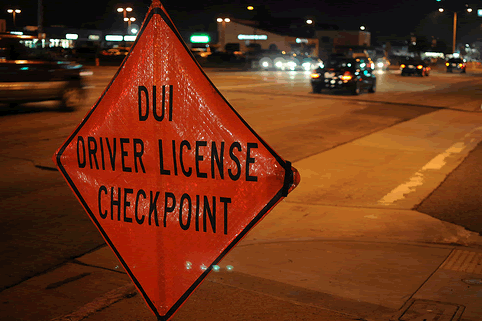Is a warrant thicker than blood?
Colorado is seeking certiorari to ask the Supreme Court whether a warrant is required when performing an involuntary blood test in DUI cases.
This article is the first in a two-part series on intoxication tests involving DWIs.
Can law enforcement officers require an individual whom they have probable cause to believe is an intoxicated driver to submit to a blood test in the absence of a warrant? This is a question that the District Attorney’s Office of Colorado’s 18th Judicial District wants the Supreme Court of the United States to clarify.
The District Attorney’s office is seeking certiorari in People v. Schaufele, arguing that a warrant is not required when law enforcement officers are compelling an individual to submit to a blood test if they have probable cause to believe that the individual has been driving while intoxicated. The Colorado Supreme Court has articulated the issue in this case as whether “[u]nder the Fourth Amendment, do exigent circumstances justify a warrantless blood draw of a drunk driver if the police reasonably believe the blood can be drawn before a warrant can be secured?”
If certiorari is granted this will not be an issue of first impression before the court. The Supreme Court has analyzed involuntary blood draws in the 1965 case of Schmerber v. California and more recently in 2013 with Missouri v. McNeely.
Law enforcement officers are concerned that the amount of alcohol in a suspect’s blood stream will dissipate to a level without evidentiary value by the time a search warrant can be obtained.
The Supreme Court has articulated three requirements in order for law enforcement to justify a compelled blood draw. Law enforcement must first have probable cause to believe the suspect was driving while impaired; second, the office must have a clear indication that through the blood draw they will find evidence of impairment; and third, the law enforcement officer must have either a warrant or must rely on exigent circumstances.
Hot pursuit of a fleeing felon, emergency aid, and the need to prevent the imminent destruction of evidence have been articulated by the Supreme Court as exigent circumstances that can allow certain warrantless searches. The commonly argued exception regarding DUI cases is that there is a need to prevent the imminent destruction of evidence. This is based on the argument that the “natural metabolization of alcohol in the bloodstream” is a sufficient exigency to allow a blood draw in the absence of a warrant. Law enforcement officers are concerned that the amount of alcohol in a suspect’s blood stream will dissipate to a level without evidentiary value by the time a search warrant can be obtained.
In considering the issue of a sufficient exigency, courts will examine whether or not there is a need to prevent the imminent destruction of evidence based on the totality of the circumstances. The court in Schaufele found that, based on the totality of the circumstances, sufficient exigent circumstances did not exist to allow law enforcement officers to draw blood without a warrant. A large part of the court’s decision rested on the fact that the arresting officers had access to an expedited warrant process, although they indicated that it may take one to four hours to use due to their inexperience with the system. Thus, since law enforcement had the ability to make use of an expedited warrant system, the fear of destruction of the evidence in the suspect’s blood did not allow the officers to forego seeking warrant.
Allowing law enforcement to conduct blood draws in the absence of a warrant would make it much easier to fight intoxicated drivers.
On appeal the State of Colorado is arguing for a per se rule allowing law enforcement to make an individual take a blood test in the absence of a warrant if they have probable cause to believe that the individual was driving while impaired. This argument is based on Chief Justice Roberts’ concurrence/dissent in McNeely. In McNeely he argued that in a DUI case the court should abandon the totality of the circumstances test for blood tests in favor of a per se rule. This proposed rule would allow an officer to conduct a blood draw if the officer could “reasonably conclude” that the amount of alcohol in the individuals system would dissipate. This would allow a more forgiving and more favorable standard for law enforcement.
This issue will be one to follow closely as it will have an important impact on how law enforcement throughout the country will be required to conduct DUI enforcement. Allowing law enforcement to conduct blood draws in the absence of a warrant would make it much easier to fight intoxicated drivers, which is exactly what the District Attorney’s office will likely argue. If certiorari is granted, the Supreme Court will have to decide whether or not the risk of the dissipation of alcohol sufficiently outweighs one’s Fourth Amendment protections against compelled blood draws.






